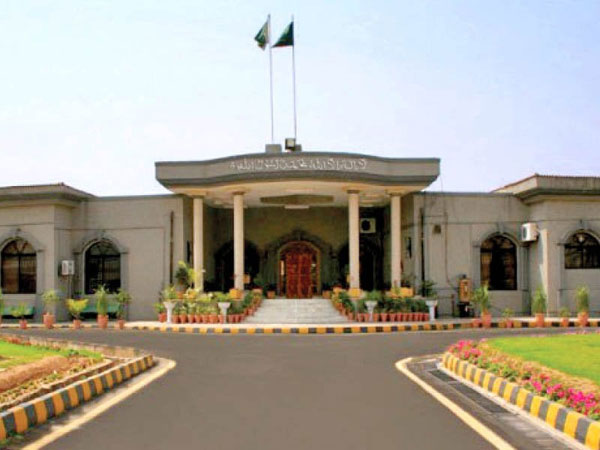 The federal government contested the Islamabad High Court’s (IHC) November 21 decision on Friday invalidating Imran Khan’s jail trial in the cypher case.
The federal government contested the Islamabad High Court’s (IHC) November 21 decision on Friday invalidating Imran Khan’s jail trial in the cypher case.
In its petition, the government has argued that the IHC failed to assess the facts appropriately before declaring the special court designated to hear the cipher trial null and void. It maintained that the high court does not have the authority to abolish the status of a special court.
Advocate Raja Rizwan Abbasi submitted the application on behalf of the federal government.
Imran Khan, special court judge Abul Hasnat Zulqarnain, DG FIA, IG, DC, and chief commissioner Islamabad, among others, have been named as respondents in the petition. On November 22, the IHC declared the proceedings of PTI chairman Imran’s and vice chairman Shah Mahmood Qureshi’s trial conducted in jail in the cipher case so far as null and void.
The court declared that the notification issued by the law ministry on August 29 – which read that the Law and Justice Division had “no objection” to PTI chairman’s trial in the cipher case being held at Attock jail – was without lawful authority and no legal effect “for want of an order by the appropriate government and fulfilment of requirements provided in Section 352 of the CrPC [Code of Criminal Procedure] as well as Rule 3 in Part-A of Chapter-1 in Volume-III of the Rules and Orders of the Lahore High Court”.
In its short order, the court also declared the law ministry’s notifications about Imran’s jail trial issued on September 12, September 25, October 3, and October 13 to be “without lawful authority and no legal effect”.
It added that the law ministry’s notifications issued on November 13 and November 15 after decisions made by the cabinet were “of no legal consequence”.
The short order read that the November 15 notification could not be given a “retrospective effect”. “Consequently, the proceedings with effect from August 29 and the trial conducted … in jail premises in a manner that cannot be termed as an open trial stand vitiated,” the order read.
As a result, Imran and his aide Shah Mahmood Qureshi’s October 23 indictments in the case also became null and void. The IHC had then ordered the special court to conduct the trial in open court.
In another one of Imran’s petition regarding the jail trial, the IHC, for the second time, invalidated the proceedings of the special court.
On December 14, the special court – formed last year to hear cases under the Official Secrets Act (OSA), 1923 – imposed a strict ban on reporting cipher case proceedings in print, electronic, and digital media outlets, rendering the trial to essentially be a closed one.
The court directed the Pakistan Telecommunication Authority and the Pakistan Electronic Media Regulatory Authority to ensure no reporting on the proceedings take place. While family members of the accused were allowed to attend, they were prohibited from publishing any evidence or statements made during the proceedings.
“All the proceedings conducted by the learned Judge, Special Court after the said order dated 14.12.2023, are declared to be of no legal consequence,” the order read.